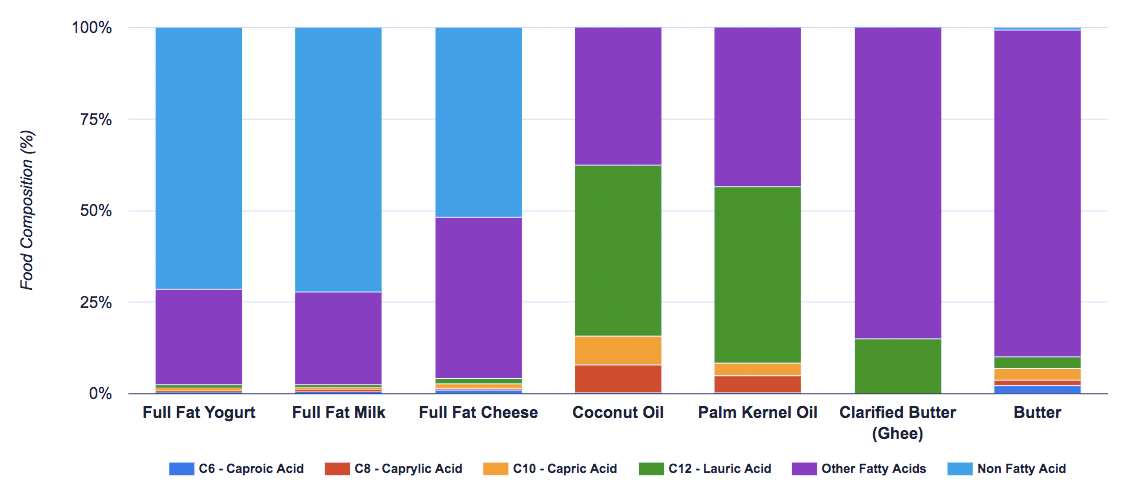Coconut Oil Coffee for Pre Workout Energy
Minimal MCTs In Coconut Oil
The issue with this article is that it misleadingly promotes Coconut Oils as a good source of MCTs.
In reality, only 20% of Coconut Oil is composed of MCTs. The remaining 80% is composed of Lauric Acid nd other fats.
Graph Source:
https://ketosource.co.uk/caprylic-acid-c8/
"
Lauric acid is a good food source, but
it behaves like an LCT (long chain triglyceride),
not an MCT, when you consume it, which means you don’t get the fast ketone energy from it..."
"From a biology perspective, lauric acid should actually be considered a LCT"..."
Source:
What Is MCT Oil Really? MCT Oils vs. Coconut Oil Explained
Digestion Time
1) Coconut Oil Digestion Time is much longer due to thae fact that it is a Long Chain Fatty Acid...
a) Ketone level peak at about 3 hour after taking Coconut Oil.
b) Ketones remained in system for 7 - 8 hours.
2) MCT Oil Digest Time is fast.
a) Ketone level higher but peaked at 90 minutes.
b) Ketones gone at 3 hours
Source:
How Much Coconut Oil for Alzheimer's & Dementia?
Cost: MCT Vs Coconut Oil
The cost of MCT Oil is similar to Coconut Oil.
Take Home Message
Coconut Oil provide some great heath benefits.
However, ...
1) Coconut Oil is low in MCTs. That because Lauric Acid (a Long Chain Fatty Acid) was erroneously considered to be a Medium Chain Fatty Acid, which it is not.
The incorrect dogma on Coconut Oil being a high source of MCTs continue to be perpetuated.
2) MCTs are absorbed much faster into your system and available for use: much faster than Coconut Oil.
3) The cost of MCT Oil is virtually the same as Coconut Oil.
Kenny Croxdale

